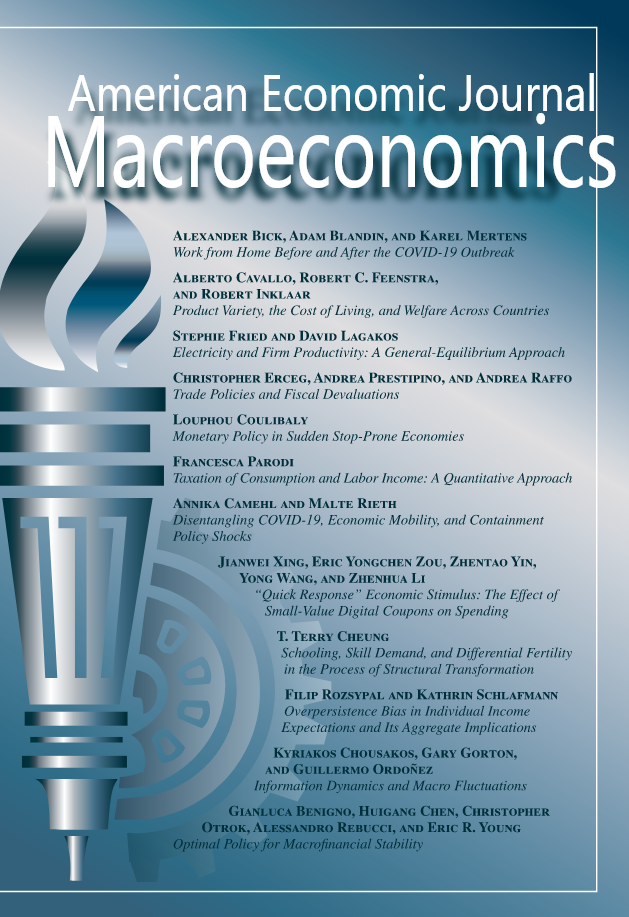工人流动率下降:短期就业咒语的作用
IF 5.7
1区 经济学
Q1 ECONOMICS
引用次数: 5
摘要
使用季度劳动力指标数据库,我们证明了过去二十年劳动力市场流动率下降的很大一部分是由持续一到两个季度的就业下降造成的。这种现象是普遍存在的:在各个行业、公司规模、人口群体和地理区域,短期就业时间都在减少。使用Diamond-Mortensen-Pissarides传统中的搜索与匹配模型(该模型包含了有关工人-公司匹配质量的嘈杂信号),我们认为工人和公司的改进筛选可以解释短期就业时间减少的大部分原因。(j24, j23, j41, j63, m51)本文章由计算机程序翻译,如有差异,请以英文原文为准。
Declining Worker Turnover: The Role of Short-Duration Employment Spells
Using the Quarterly Workforce Indicators database, we document that a significant amount of the decline in labor market turnover during the last two decades is accounted for by the decline in employment spells that last just one or two quarters. This phenomenon is pervasive: short-term employment spells have declined across industries, firm size categories, demographic groups, and geographic regions. Using a search-and-matching model in the Diamond-Mortensen-Pissarides tradition that incorporates noisy signals about the quality of a worker-firm match, we argue that improved screening by workers and firms can account for much of the decline in short-lived employment spells. (JEL E24, J23, J41, J63, M51)
求助全文
通过发布文献求助,成功后即可免费获取论文全文。
去求助
来源期刊

American Economic Journal-Macroeconomics
ECONOMICS-
CiteScore
8.20
自引率
1.70%
发文量
58
期刊介绍:
American Economic Journal: Macroeconomics focuses on studies of aggregate fluctuations and growth, and the role of policy in that context. Such studies often borrow from and interact with research in other fields, such as monetary theory, industrial organization, finance, labor economics, political economy, public finance, international economics, and development economics. To the extent that they make a contribution to macroeconomics, papers in these fields are also welcome.
 求助内容:
求助内容: 应助结果提醒方式:
应助结果提醒方式:


